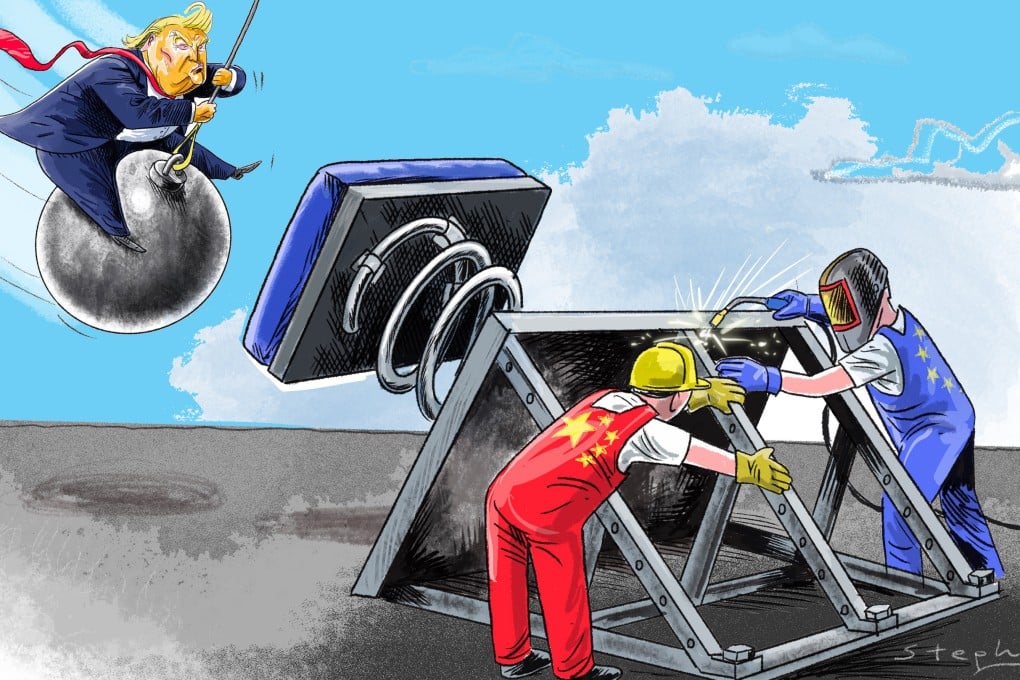Advertisement
Opinion | Together, China and the EU can be better prepared for a Trump return
- A second Trump administration is likely to escalate hostilities against China and the EU, with higher tariffs and a possible US exit from Nato
- To prepare, Beijing and Brussels must start tackling the geopolitical, security and trade issues that separate them
Reading Time:4 minutes
Why you can trust SCMP
11

As the countdown to the US presidential election begins, China and the European Union must prepare themselves for Donald Trump’s potential second term. While individual efforts are essential, true power lies in the ability of China and the EU to develop a coordinated response.
Collaboration must be bolstered across three crucial fronts: mitigating security risks, addressing key geopolitical issues, and strengthening economic and trade relations.
The security standpoint deserves special consideration in light of Trump’s contentious attitudes towards China and the EU. He is likely to intensify the hostilities seen in his first presidency, from the trade war with China to scepticism over EU alliances.
Advertisement
Trump has consistently displayed antagonism towards Europe, declaring that the EU took advantage of the US and reportedly comparing it unfavourably to China. His support for Brexit also suggested a desire for EU disintegration, which would undermine America’s long-standing partnership with Europe.
Recently, Trump said he would “encourage” Russia to attack Nato members who fail to meet their defence spending commitments, calling them “delinquent”. His words caused massive concern.
Advertisement
True, the US outspends all other countries on defence in maintaining a network of 750 bases across 80 countries, but Trump appears to conveniently overlook that this is America’s own strategic decision.
Advertisement
Select Voice
Select Speed
1.00x

